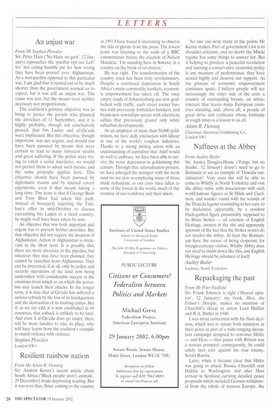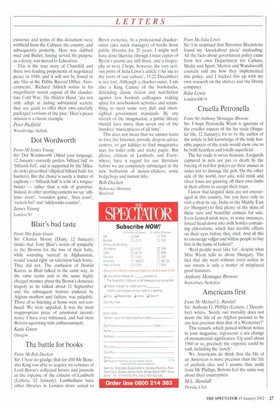Repackaging the past
From Mr Peter Padfield Sir: Frank Johnson is right (Shared opinion', 12 January): my book, Hess, the Fiihrer's Disciple. makes no mention of Churchill's threat to arrest Lord Halifax and R.A. Butler in 1940.
I was more concerned with his final decision, which was to retain both ministers in their posts as part of a wide-ranging deception campaign designed to convince Hitler — and Hess — that peace with Britain was a serious prospect; consequently, he could safely turn east against his true enemy, Soviet Russia.
Later, when it became clear that Hitler was going to attack Russia, Churchill sent Halifax to Washington; and after Hess arrived in Scotland carrying detailed peace proposals which included German withdrawal from the whole of western Europe. the existence and terms of this document were withheld from the Cabinet, the country, and subsequently posterity. Hess was dubbed mad and Butler, having served his purpose as a decoy, was moved to Education.
This is the true story of Churchill and these two leading proponents of negotiated peace in 1940, and it will not be found in any files at the Public Record Office. 'Governments,' Richard Aldrich writes in his magnificent recent exposé of the clandestine Cold War, The Hidden Hand, 'are not only adept at hiding substantial secrets, they are quick to offer their own carefully packaged versions of the past.' Hess's peace mission is a classic example.
Peter Padfield
Woodbridge, Suffolk































































 Previous page
Previous page